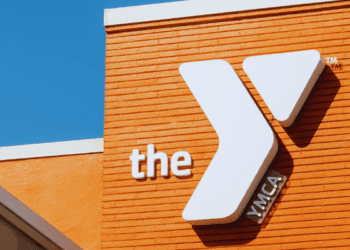Op-Ed published in the Globe and Mail, March 16, 2010.
Calvin Helin and Dave Snow
Despite years of effort and billions of dollars spent, aboriginals continue to fare worse than all other Canadians on almost every social and economic indicator. Education, particularly higher education, is undeniably one of the keys to fixing this iniquitous state of affairs.
According to one study, if aboriginal Canadians were able to increase their educational attainment to the level of other Canadians, our cumulative economic output would grow by an additional $179-billion by 2026 and government tax revenue would be $3.5-billion higher. That would be good for aboriginals and all Canadians.
So for economic as well as moral reasons, Canada needs to do better at helping aboriginal youth attend colleges, universities and trade schools. How we pay the bill isn’t the entire answer, but it’s a key part. And the way we now pay that bill is failing aboriginal youth.
The current federal program, the Post-Secondary Student Support Program (PSSSP), does a lousy job of helping status Indian students get into postsecondary education. It fails because the money too often doesn’t reach the students themselves. Even when it does reach them, it comes in a form that helps to perpetuate a system of dependence and lack of accountability that is the hallmark of failed aboriginal policy in Canada.
Each year, taxpayers put $314-million into PSSSP. Unfortunately, this money does not go directly to registered Indian students. Instead, it is given to Indian bands to distribute, with virtually no government oversight. It’s not even required that the money be spent on aboriginal postsecondary education.
It doesn’t have to be this way. We believe that a relatively simple solution exists, one that breaks with dependency and puts into the hands of young aboriginals the power and the means to make the educational choices that are right for them: The PSSSP should be phased out, and the money should be given directly to qualifying Indian students, subject to appropriate safeguards, for them to spend solely for purposes of legitimate postsecondary education.
Here’s how it would work. The government should create an Aboriginal Post-Secondary Savings Account (APSSA) program, opening an APSSA at birth for every registered Indian, regardless of whether they live on or off reserve. A basic amount would be paid into each account when established, and the money would earn interest until the account holder finished high school. An additional sum would be added for each year of secondary education completed, creating a powerful incentive to finish high school. And when the student enrolled in a bona fide college, university or trade school, the money would be used to pay tuition and contribute to living expenses.
The institutions must be accredited, and tuition fees would be paid directly from the APSSA to the institution without passing through the student, let alone a band council. Living expenses could be drawn only in accordance with established criteria. This would ensure transparency while avoiding opportunities for waste or corruption. It would mean fairness and consistency for Indian students, regardless of band or region. And by having the money follow the students rather than the other way around would encourage postsecondary institutions to recruit and retain Indian students.
Improving educational opportunities for young aboriginals offers substantial economic benefits to Canadians. As the population ages and baby boomers retire, Canada faces a double demographic crisis: a looming shortage of workers for the private sector and taxpayers for the public sector. Studies consistently show that immigration alone cannot alleviate this shortage. Unlike the rest of the population, aboriginals are on average quite young, and because their current educational results are so poor, it’s a very promising place to look for a dramatic increase in the supply of young skilled workers.
But the key argument for the APSSA isn’t economics – it’s decency and fairness. The aboriginal grassroots are increasingly clamouring for change. Indian policy in this country is an expensive, shameful failure harmful to the intended beneficiaries and infuriating to taxpayers. What we need, if we really want to help aboriginal students help themselves, is not more money. What we need is fresh thinking.




